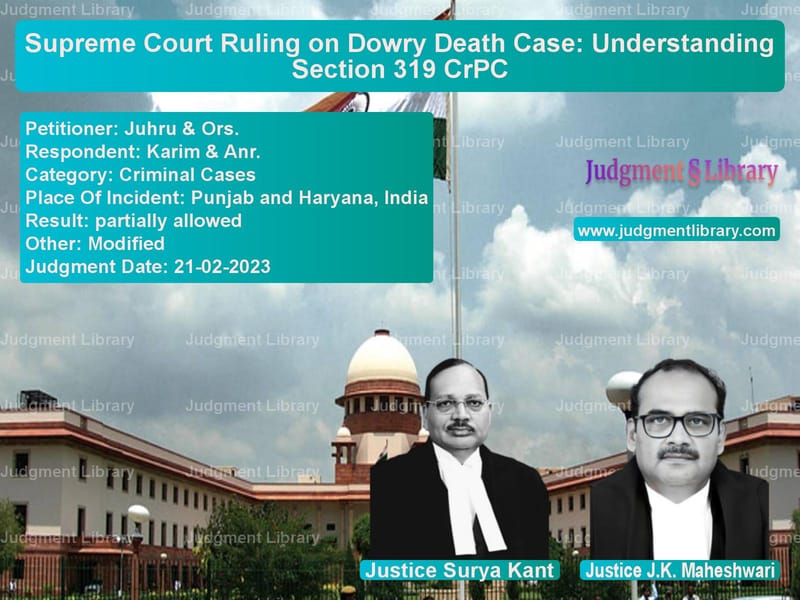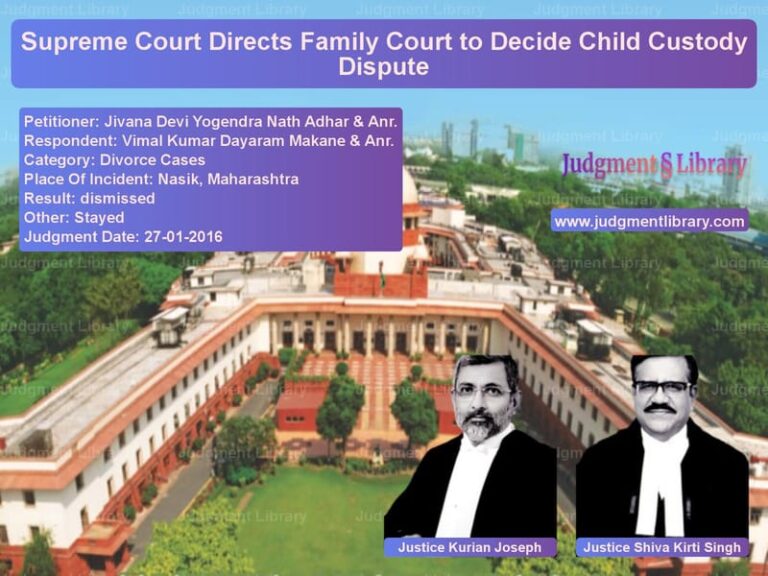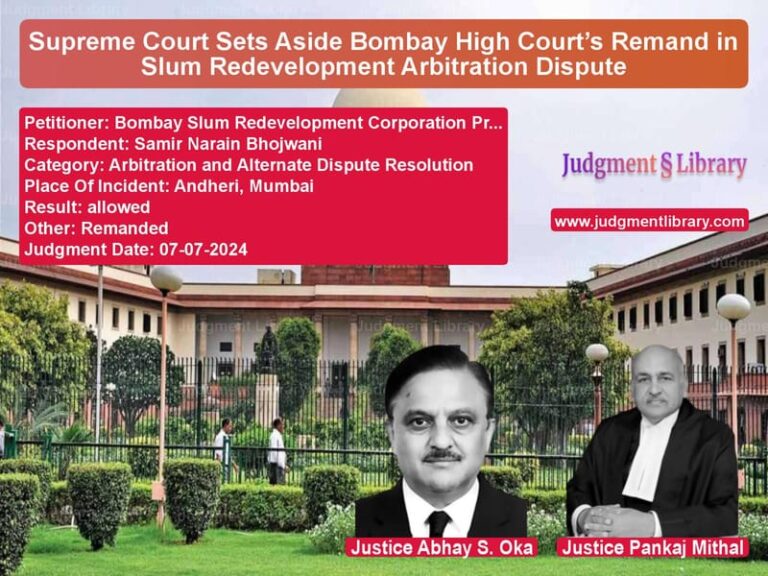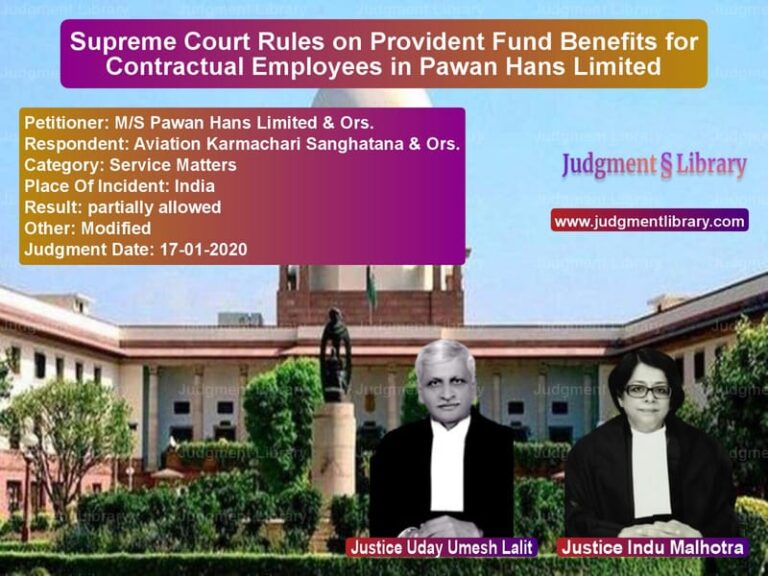Supreme Court Ruling on Dowry Death Case: Understanding Section 319 CrPC
The Supreme Court of India recently ruled in the case of Juhru & Ors. vs. Karim & Anr., a significant criminal appeal concerning the summoning of additional accused in a dowry death case. The case involved the interpretation of Section 319 of the Code of Criminal Procedure (CrPC), which grants courts the power to summon additional accused during trial based on emerging evidence.
Background of the Case
The case originated from an FIR filed on July 9, 2017, alleging that the deceased, Rukseena, was subjected to harassment and cruelty by her in-laws due to dissatisfaction over the dowry provided at her wedding. The FIR named multiple individuals, including her husband, Aamir, his mother, and his extended family. The charges were filed under Sections 304B (dowry death), 498A (cruelty by husband or relatives), 406 (criminal breach of trust), 323 (voluntarily causing hurt), and 34 (common intention) of the Indian Penal Code (IPC).
The police investigated the case and found no evidence against some of the accused, including Juhru (father-in-law), Sonam (sister-in-law), and Rijwan (brother-in-law). Consequently, the charge sheet was filed only against the husband, Aamir, and his mother. However, during the trial, the deceased’s brother, Karim, testified that all the accused had harassed his sister for dowry. Based on this, the prosecution moved an application under Section 319 CrPC to summon the initially excluded accused.
Petitioners’ Arguments
- The appellants (Juhru, Sonam, and Rijwan) argued that there was no direct evidence against them.
- The police investigation had already cleared them of wrongdoing, and no fresh evidence justified their summoning.
- The Trial Court had rightly dismissed the application under Section 319 CrPC, as no strong evidence pointed to their involvement.
- They contended that the High Court erred in reversing the Trial Court’s decision without sufficient legal justification.
Respondents’ Arguments
- The prosecution argued that the testimonies given during the trial revealed a pattern of harassment and cruelty against the deceased.
- The High Court was justified in exercising its discretion under Section 319 CrPC to summon additional accused based on trial evidence.
- The family members of the deceased had consistently alleged that all the in-laws participated in the harassment leading to Rukseena’s death.
Key Observations by the Supreme Court
The Supreme Court carefully analyzed the application of Section 319 CrPC and made the following key observations:
- Section 319 CrPC is an extraordinary power that must be exercised sparingly and only when compelling evidence surfaces.
- The power cannot be used to merely include every individual mentioned in an FIR unless there is clear and cogent evidence.
- The Court noted that while Juhru (father-in-law) lived in the same household and was likely aware of the alleged cruelty, the same could not be assumed for Sonam and Rijwan.
- The High Court had erred in summoning all the appellants without properly distinguishing their roles in the crime.
Judgment
The Supreme Court issued a split ruling:
- The Court upheld the summoning of Juhru (father-in-law), as his presence in the same house made his complicity plausible.
- However, the Court quashed the High Court’s decision regarding Sonam (sister-in-law) and Rijwan (brother-in-law), ruling that there was no credible evidence linking them to the crime.
- The Court directed that the trial court proceed against Juhru, ensuring that procedural safeguards were followed.
Implications of the Judgment
This judgment provides important clarity on the application of Section 319 CrPC:
- It reaffirms that additional accused can be summoned only when there is substantive evidence against them.
- The ruling prevents misuse of Section 319 CrPC to drag individuals into trials without sufficient justification.
- The decision underscores that proximity to the crime and active participation must be established before summoning an accused.
- The judgment safeguards the rights of the accused while ensuring justice for the victim.
Conclusion
The Supreme Court’s ruling in this case is a crucial precedent in dowry death and cruelty cases. It ensures that while guilty parties are brought to justice, innocent individuals are not unnecessarily entangled in prolonged legal battles. By emphasizing the careful application of Section 319 CrPC, the Court has reinforced the importance of due process and fair trial principles.
Petitioner Name: Juhru & Ors..Respondent Name: Karim & Anr..Judgment By: Justice Surya Kant, Justice J.K. Maheshwari.Place Of Incident: Punjab and Haryana, India.Judgment Date: 21-02-2023.
Don’t miss out on the full details! Download the complete judgment in PDF format below and gain valuable insights instantly!
Download Judgment: juhru-&-ors.-vs-karim-&-anr.-supreme-court-of-india-judgment-dated-21-02-2023.pdf
Directly Download Judgment: Directly download this Judgment
See all petitions in Bail and Anticipatory Bail
See all petitions in Extortion and Blackmail
See all petitions in Juvenile Justice
See all petitions in Attempt to Murder Cases
See all petitions in Fraud and Forgery
See all petitions in Judgment by Surya Kant
See all petitions in Judgment by J.K. Maheshwari
See all petitions in partially allowed
See all petitions in Modified
See all petitions in supreme court of India judgments February 2023
See all petitions in 2023 judgments
See all posts in Criminal Cases Category
See all allowed petitions in Criminal Cases Category
See all Dismissed petitions in Criminal Cases Category
See all partially allowed petitions in Criminal Cases Category







